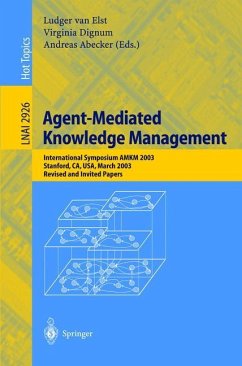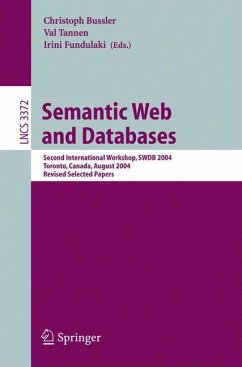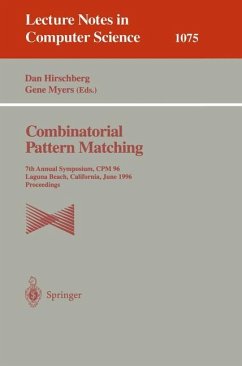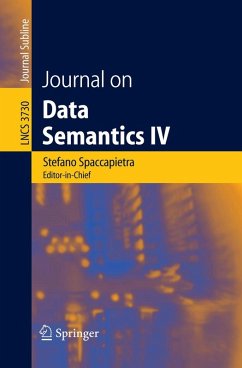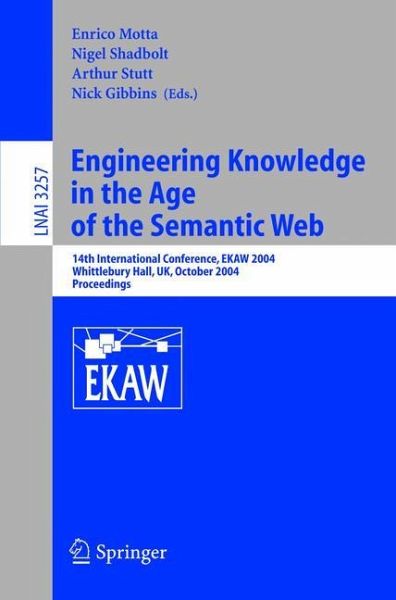
Engineering Knowledge in the Age of the Semantic Web
14th International Conference, EKAW 2004, Whittlebury Hall, UK, October 5-8, 2004. Proceedings
Herausgegeben: Motta, Enrico; Shadbolt, Nigel; Stutt, Arthur; Gibbins, Nick

PAYBACK Punkte
39 °P sammeln!
The central themes of the 14th International Conference on Knowledge Engineering and Knowledge Management (EKAW 2004) were ontological engineering and the Semantic Web. These provide the key foundational and delivery mechanisms for building open, Web-based knowledge services. However, consistent with the tradition of EKAW conferences, EKAW 2004 was concerned with all aspects of eliciting, acquiring, modelling and managing knowledge, and its role in the construction of knowledge-intensive systems. Indeed a key aspect of the Knowledge Acquisition Workshops (KAWs) held in the US, Europe and Asia ...
The central themes of the 14th International Conference on Knowledge Engineering and Knowledge Management (EKAW 2004) were ontological engineering and the Semantic Web. These provide the key foundational and delivery mechanisms for building open, Web-based knowledge services. However, consistent with the tradition of EKAW conferences, EKAW 2004 was concerned with all aspects of eliciting, acquiring, modelling and managing knowledge, and its role in the construction of knowledge-intensive systems. Indeed a key aspect of the Knowledge Acquisition Workshops (KAWs) held in the US, Europe and Asia over the past 20 years has been the emphasis on 'holistic' knowledge engineering, addressing problem solving, usability, socio-technological factors and knowledge modelling, rather than simply analyzing and designing symbol-level inferential mechanisms. The papers included in this volume are thus drawn from a variety of research areas both at the cutting edge of research in ontologies and the Semantic Web and in the more traditionally grounded areas of knowledge engineering. A Semantic Web service can be seen as the addition of semantic technologies to Web services to produce Web-accessible services that can be described using appropriate ontologies, reasoned about and combined automatically. Since Web services can be seen as Web-accessible computational objects, much of the work in this area is also concerned with problem-solving methods (PSMs).






